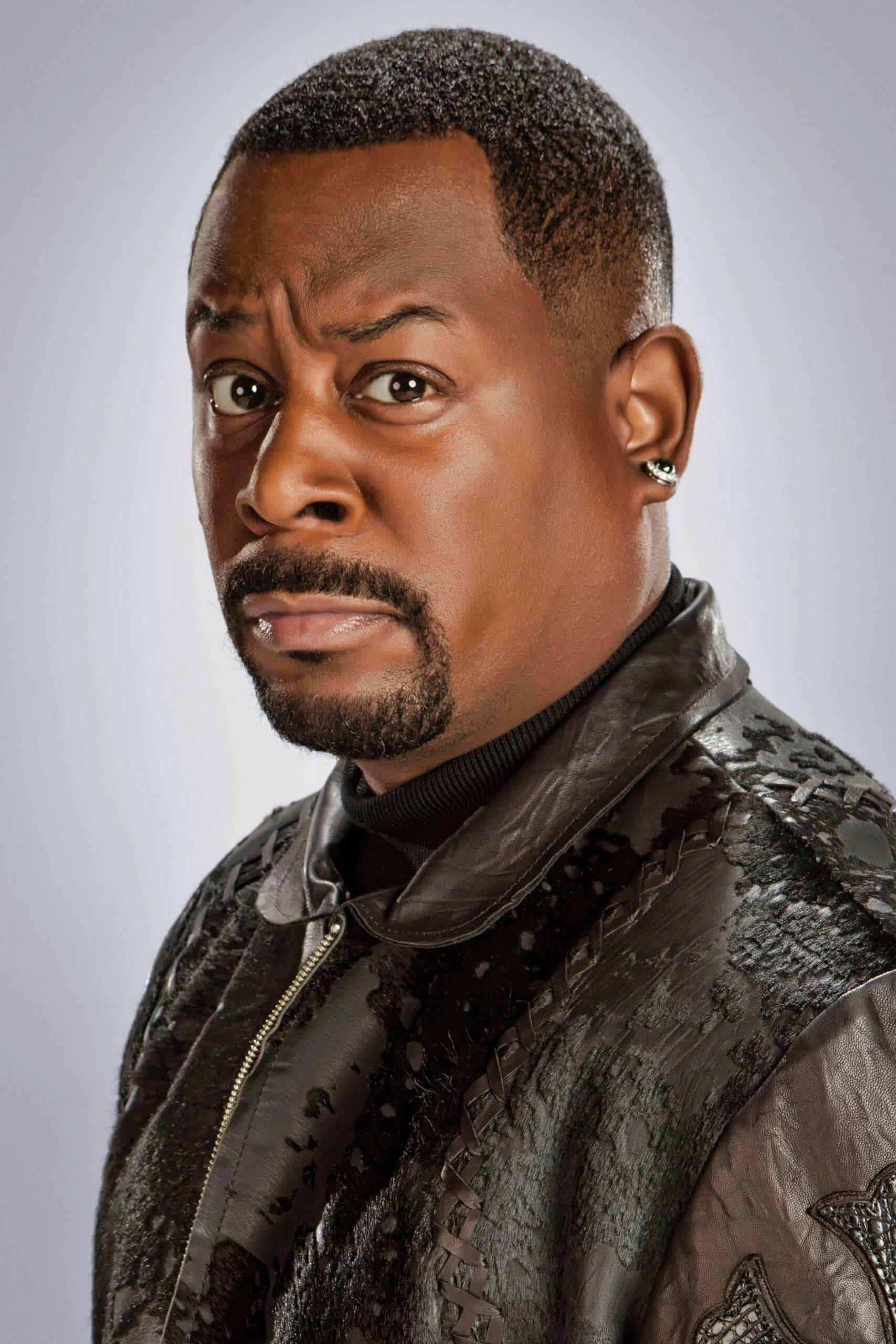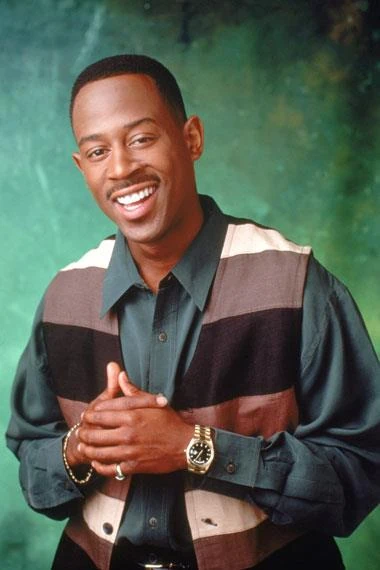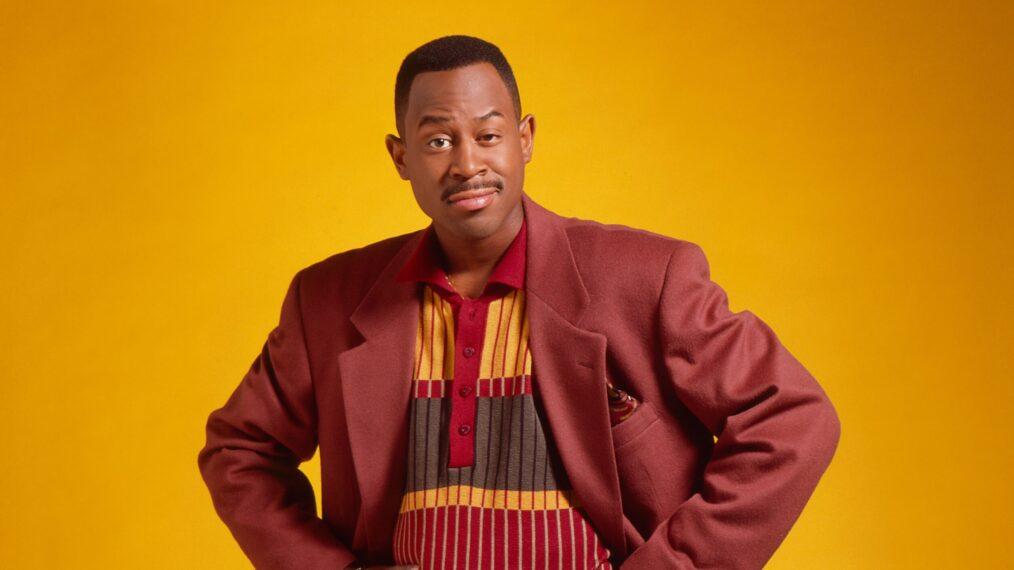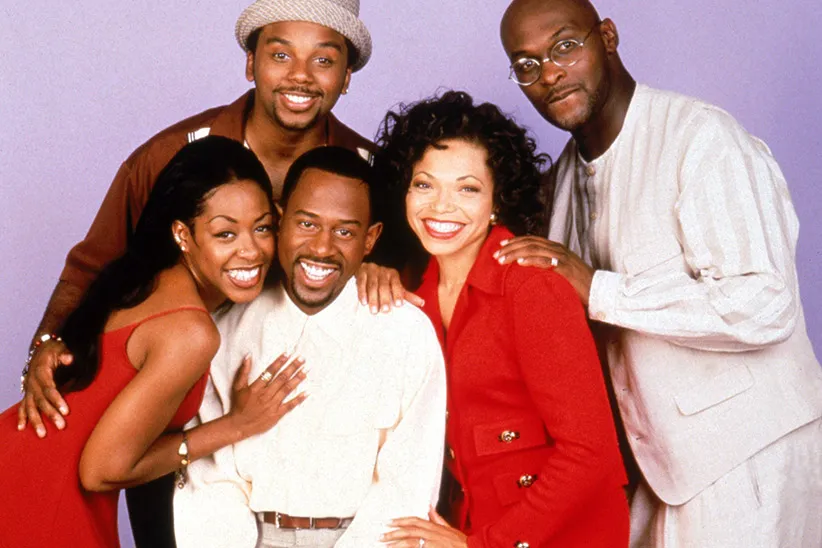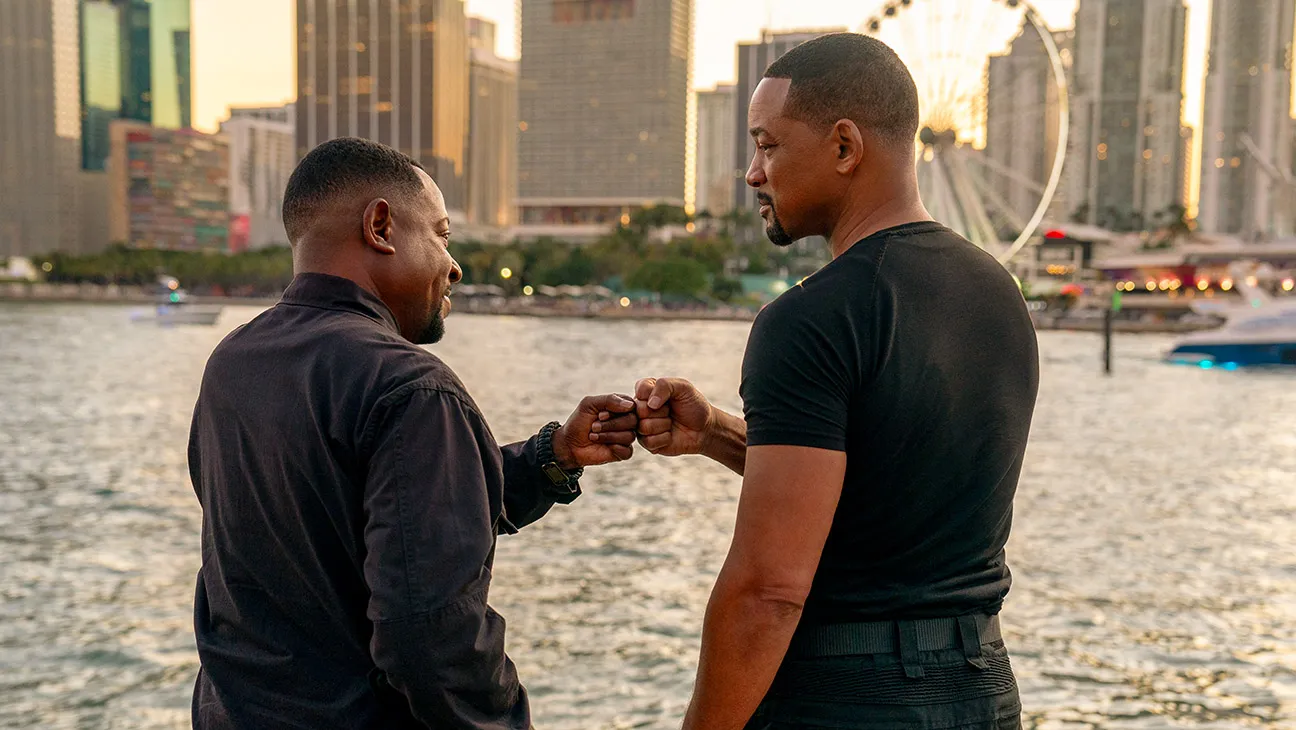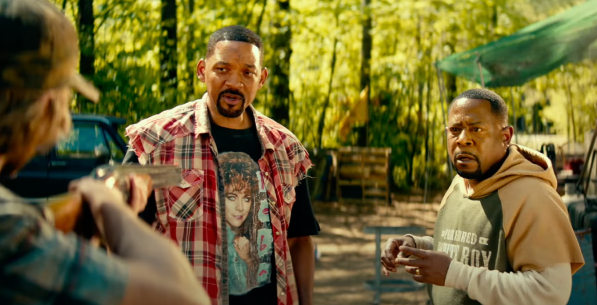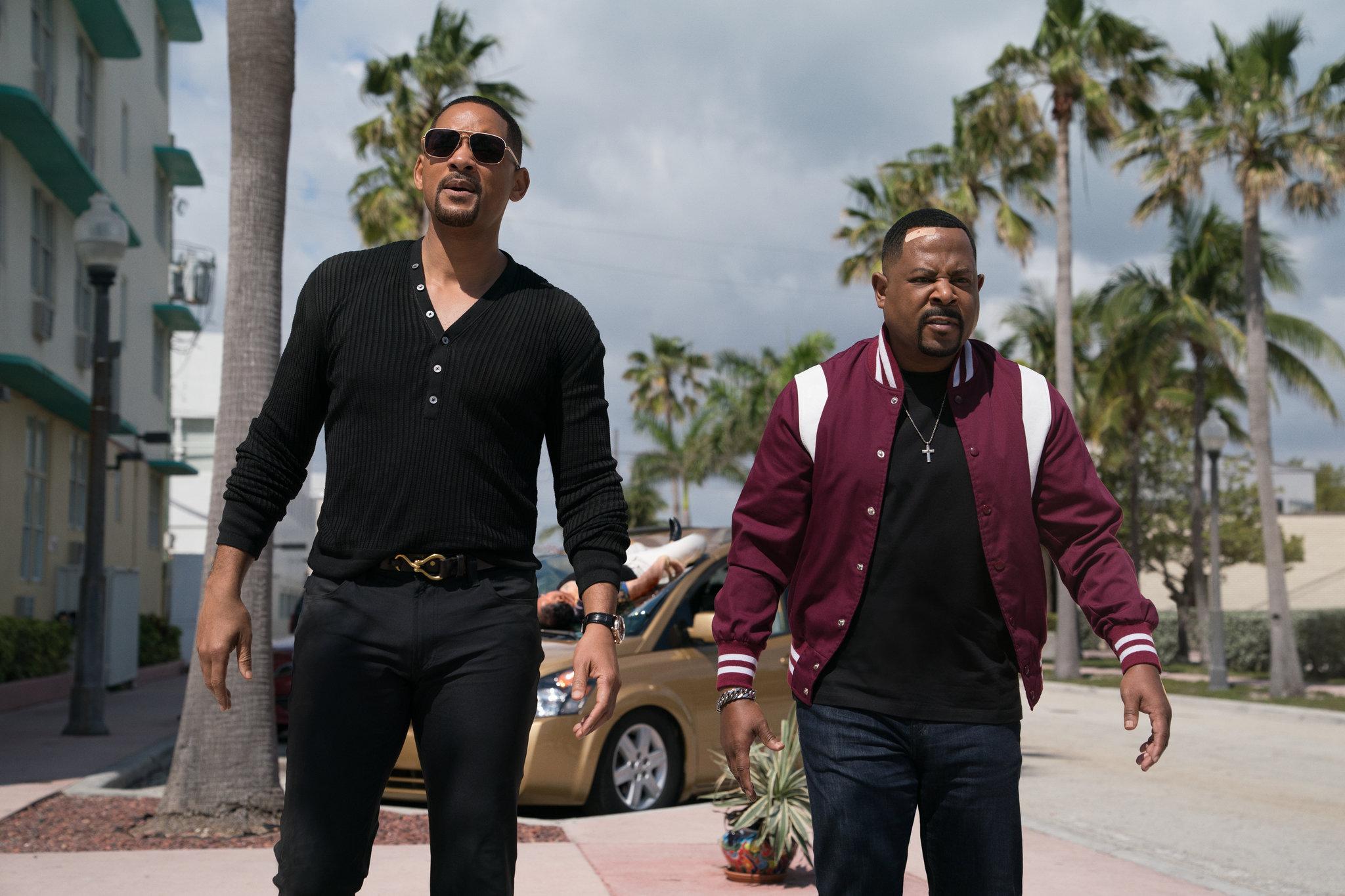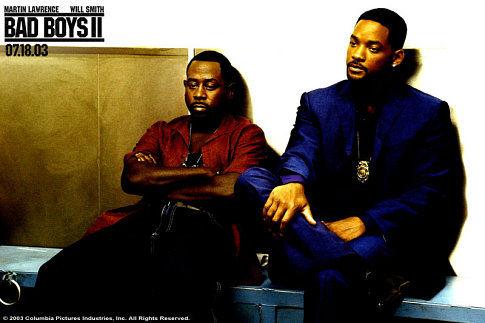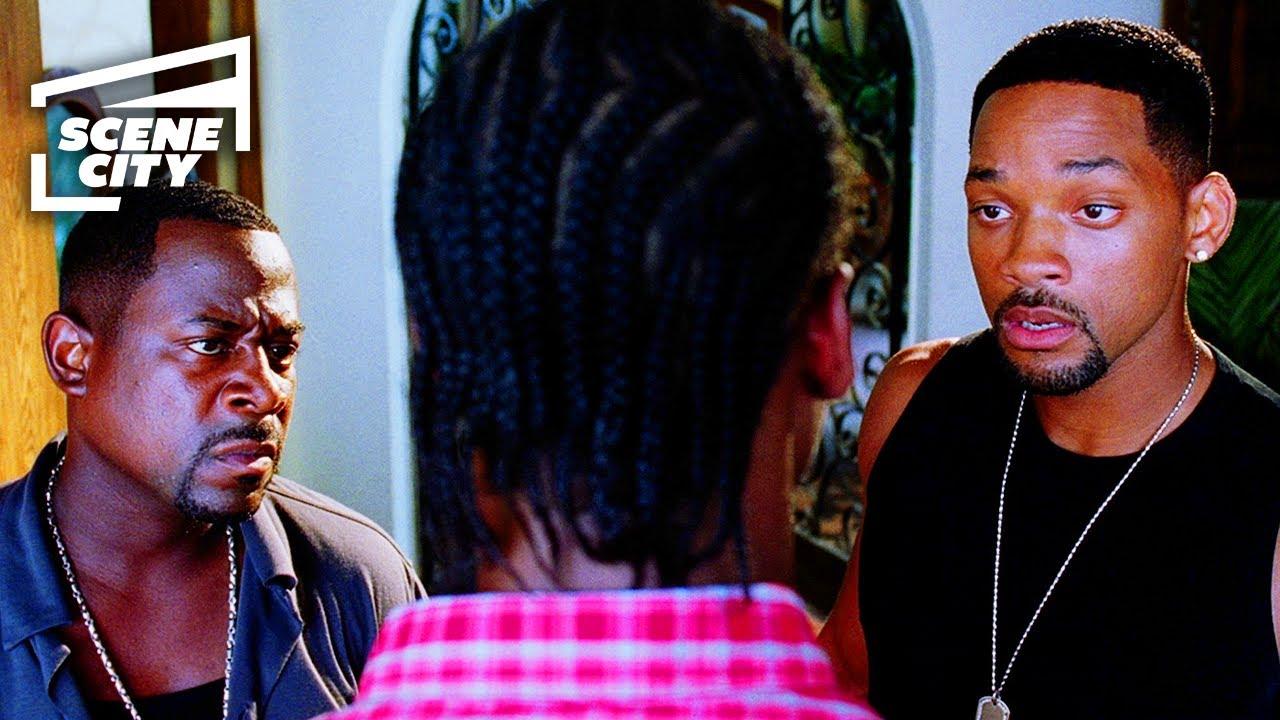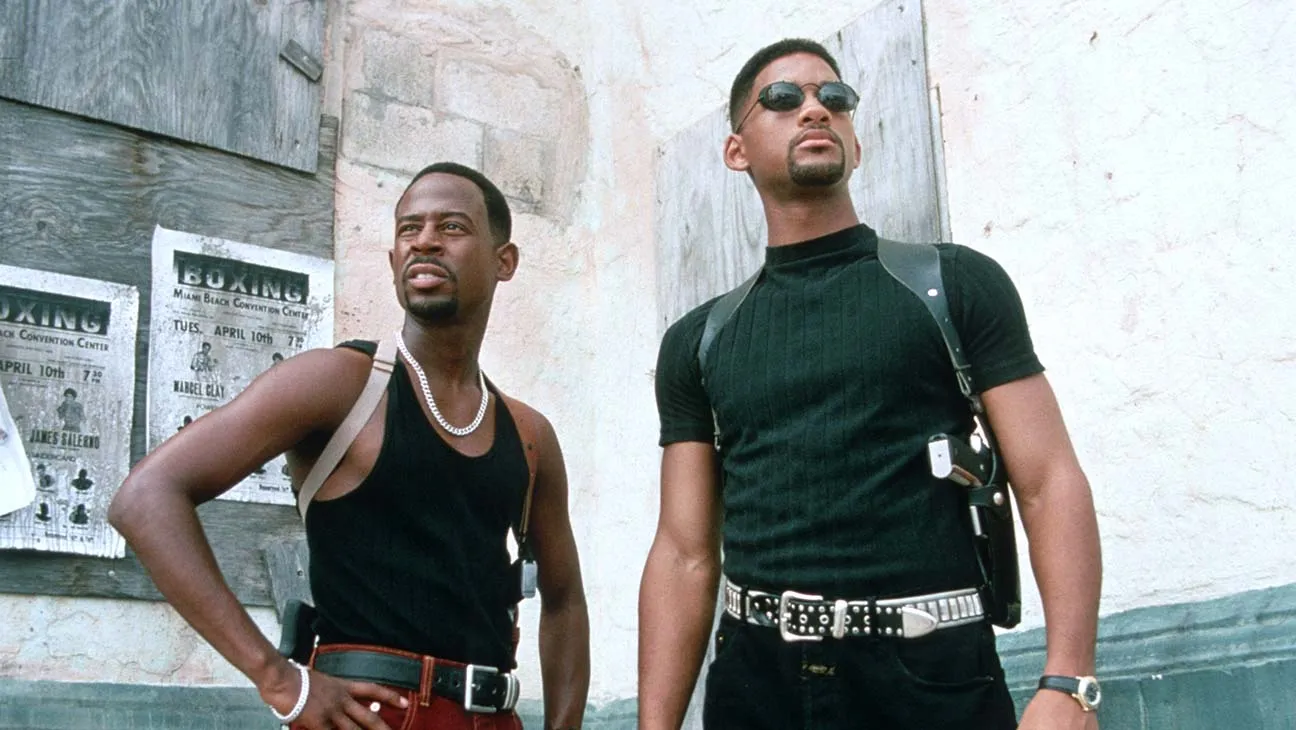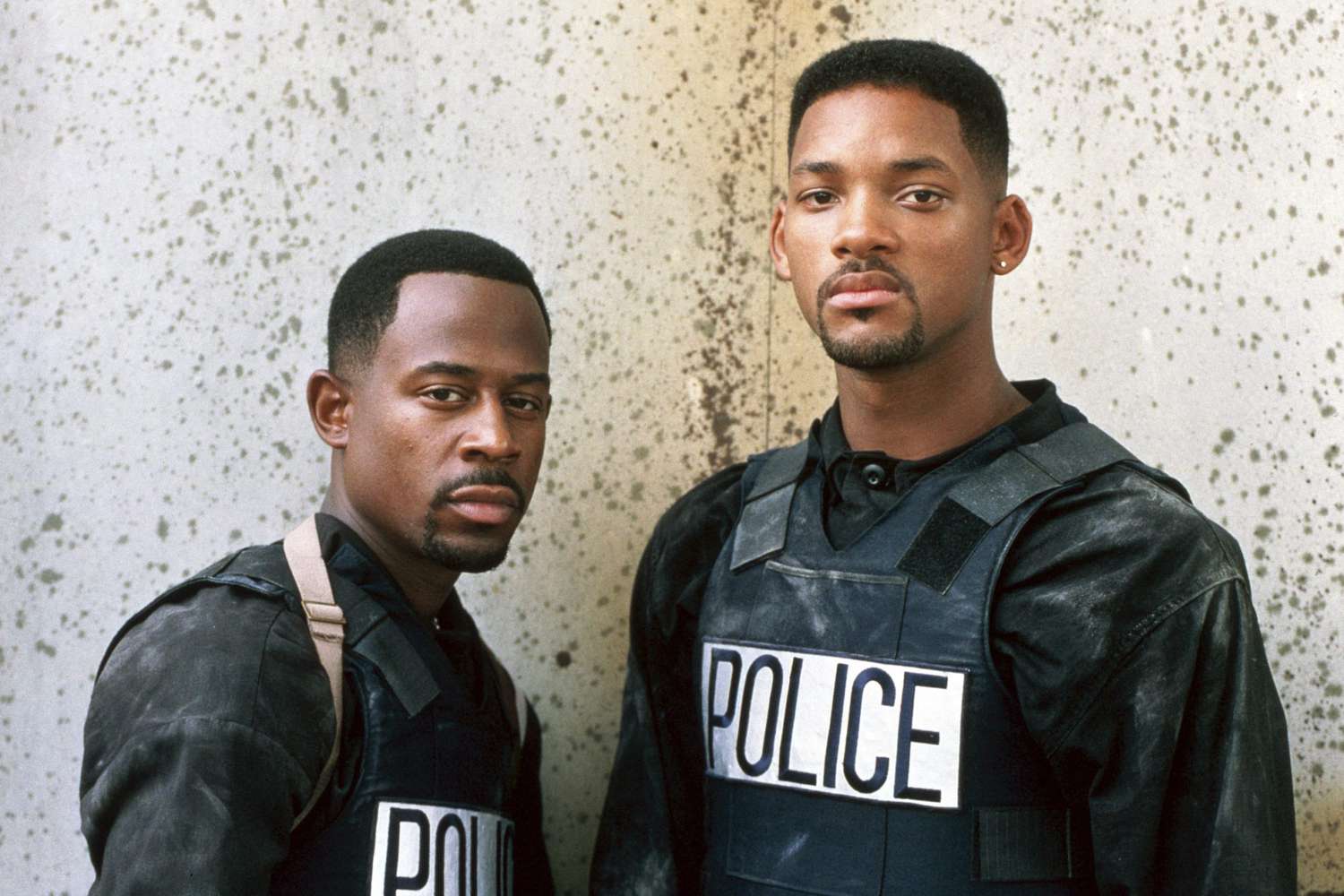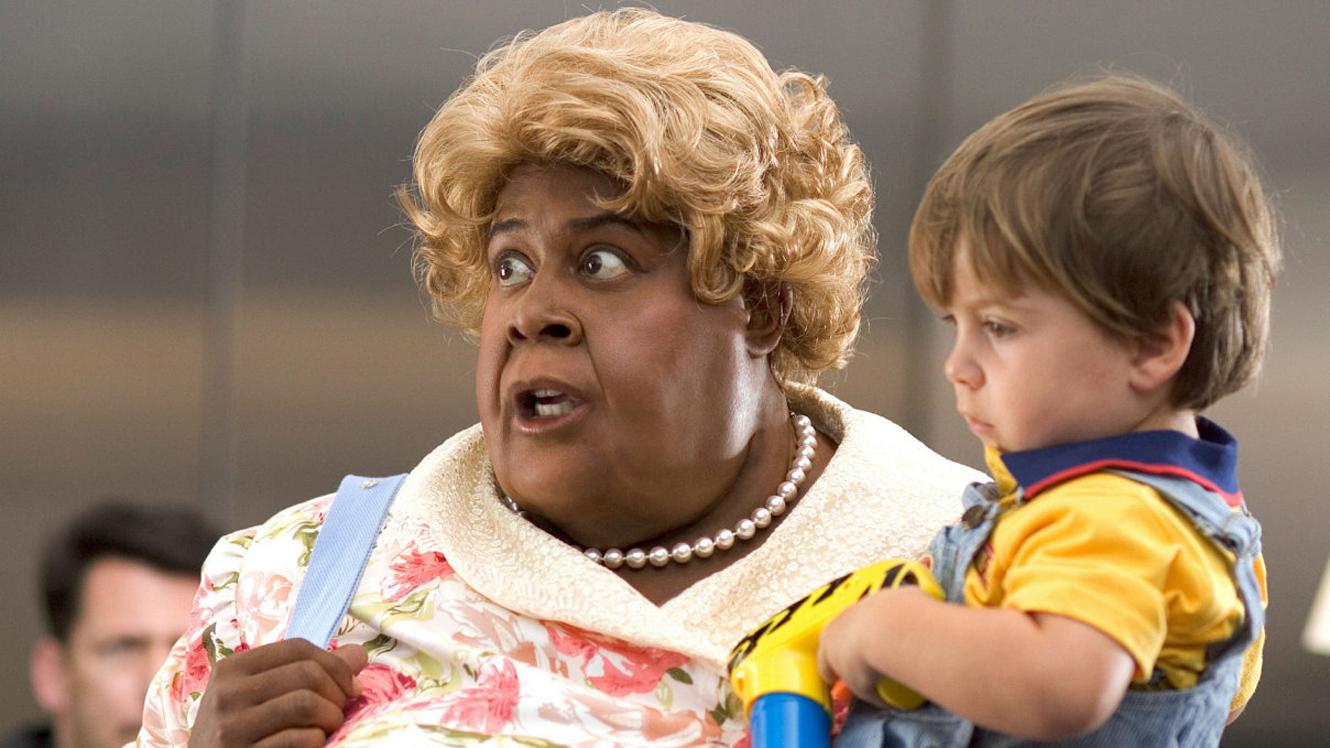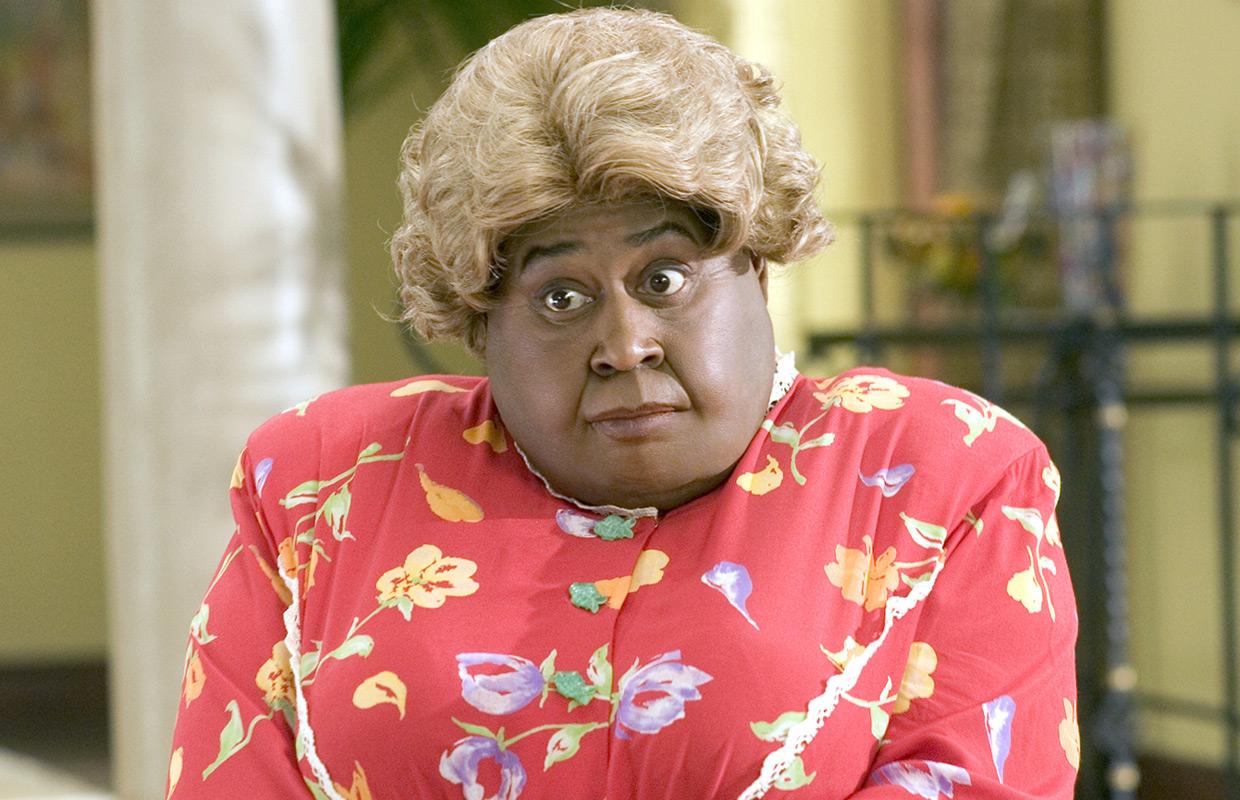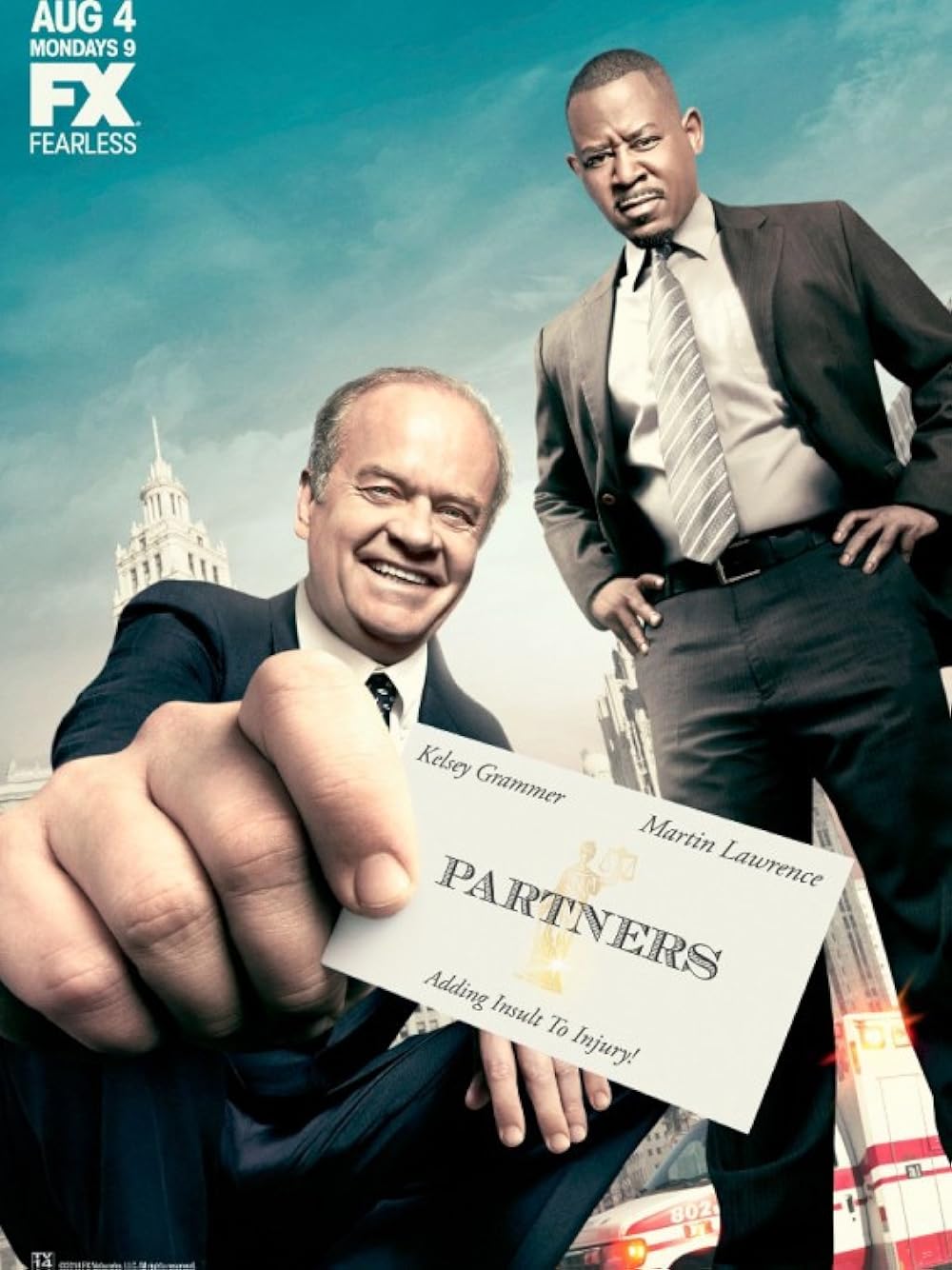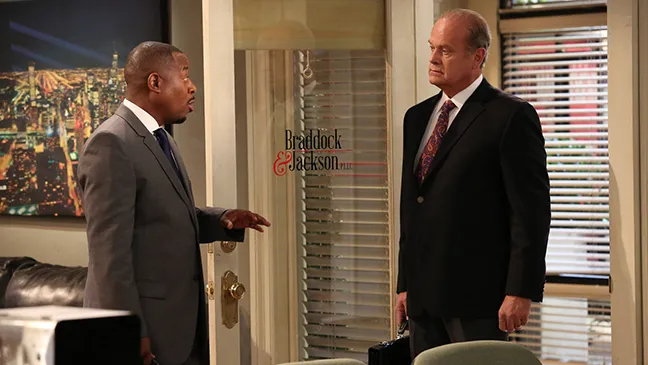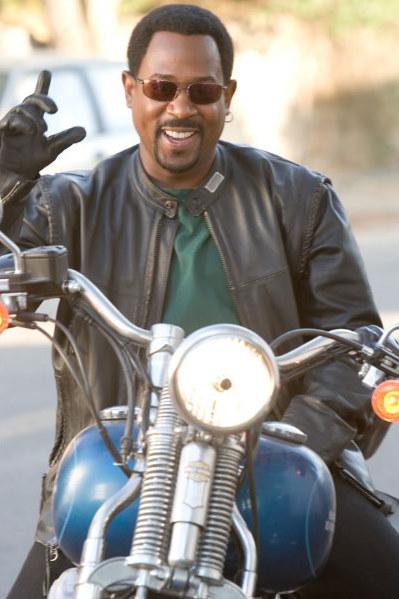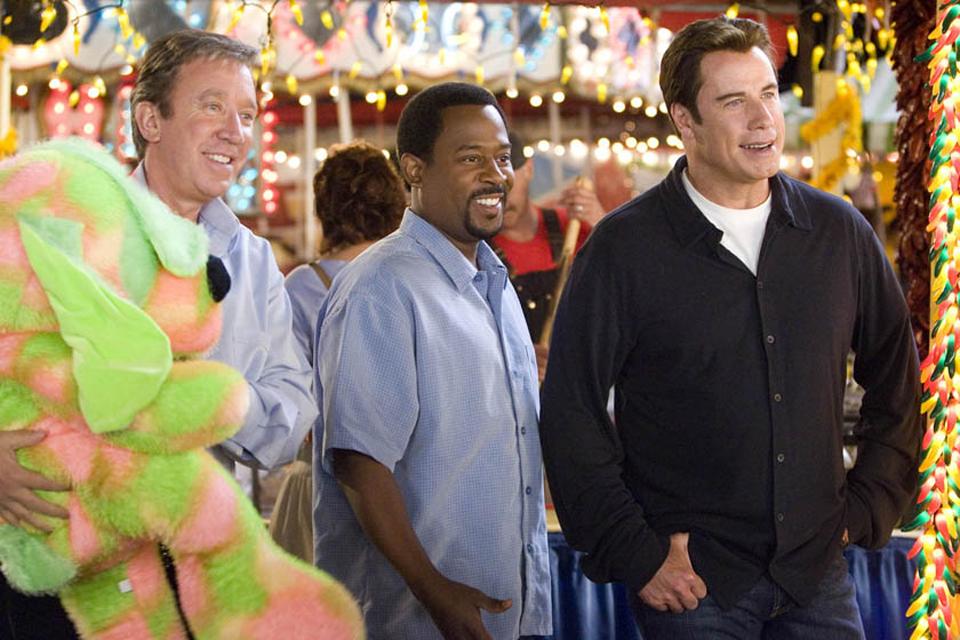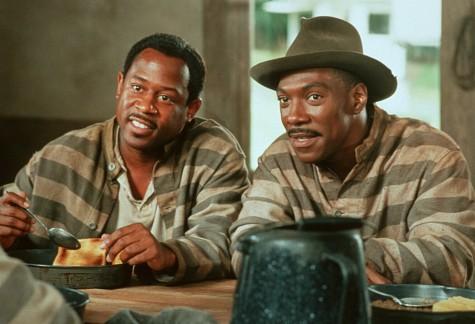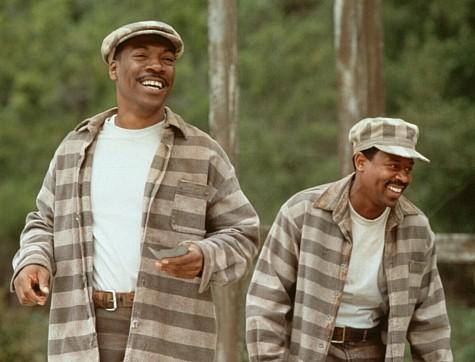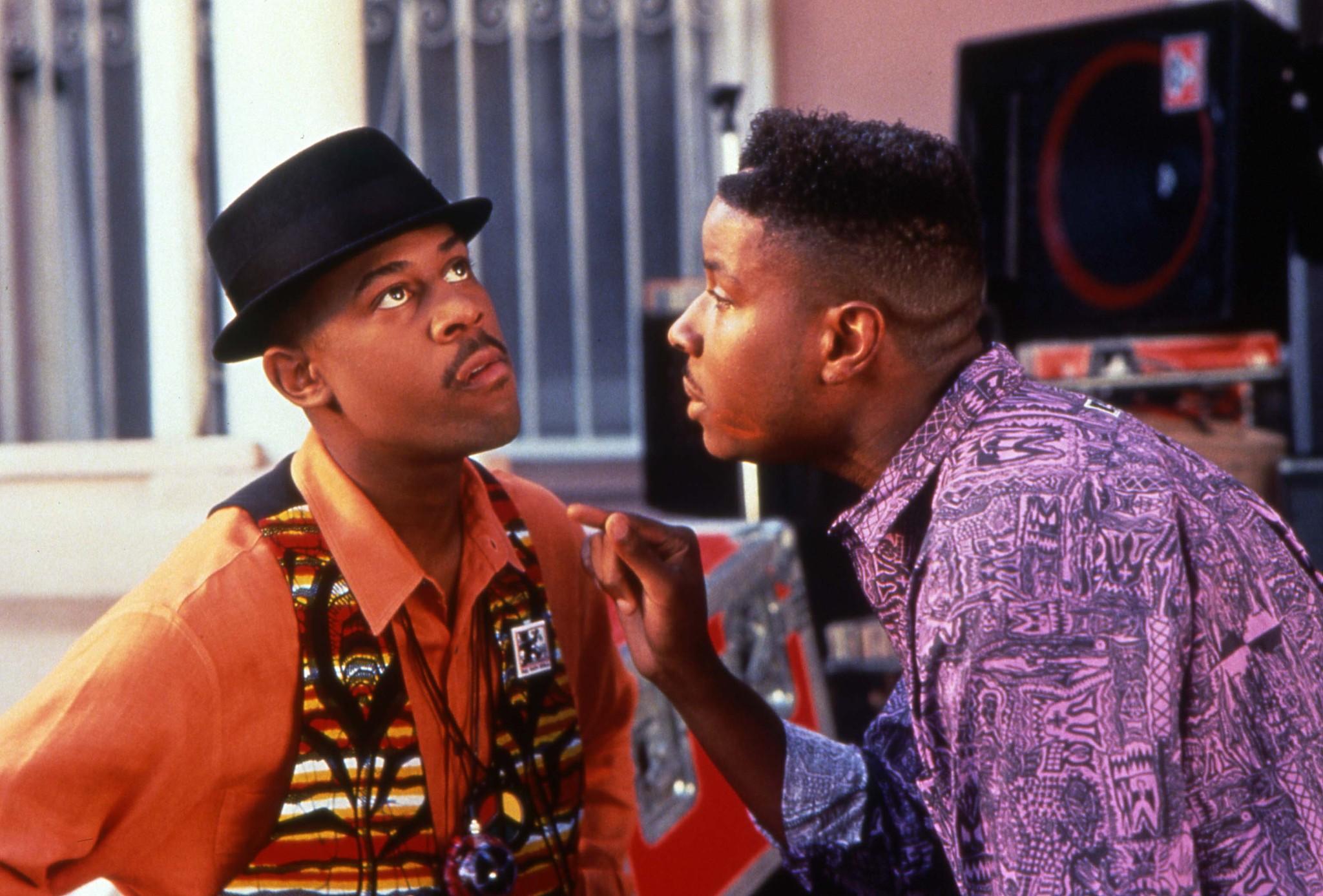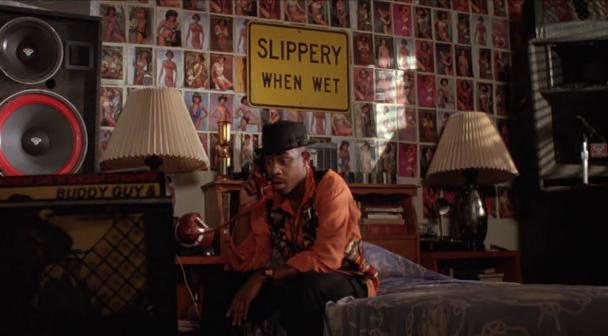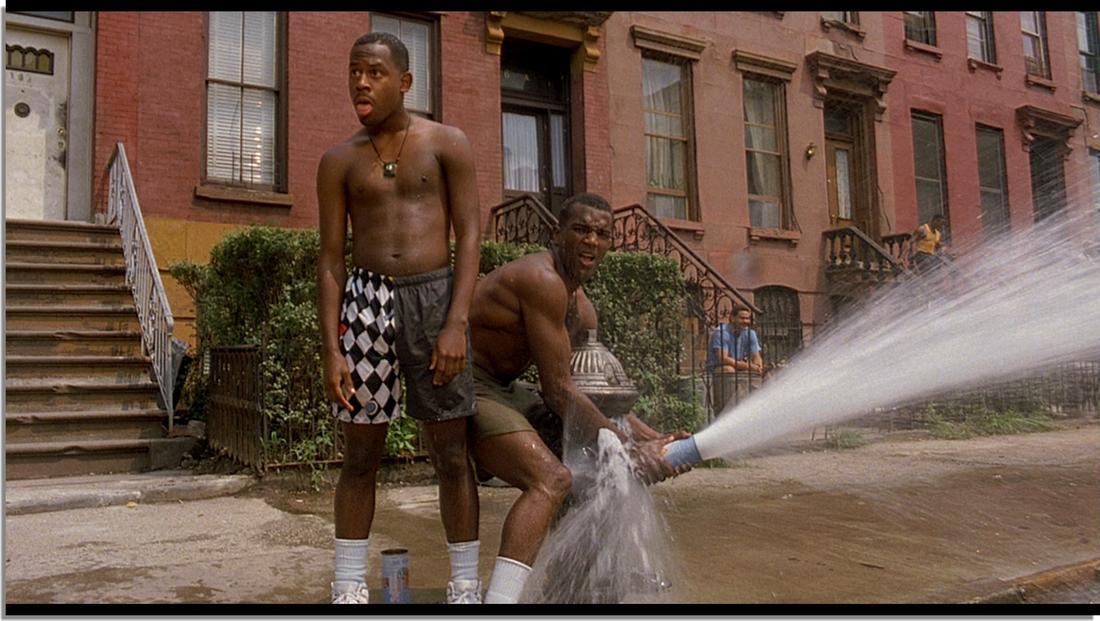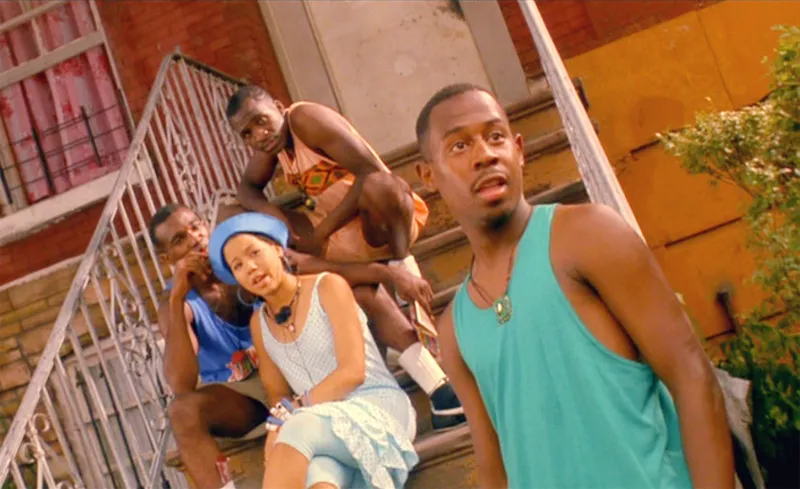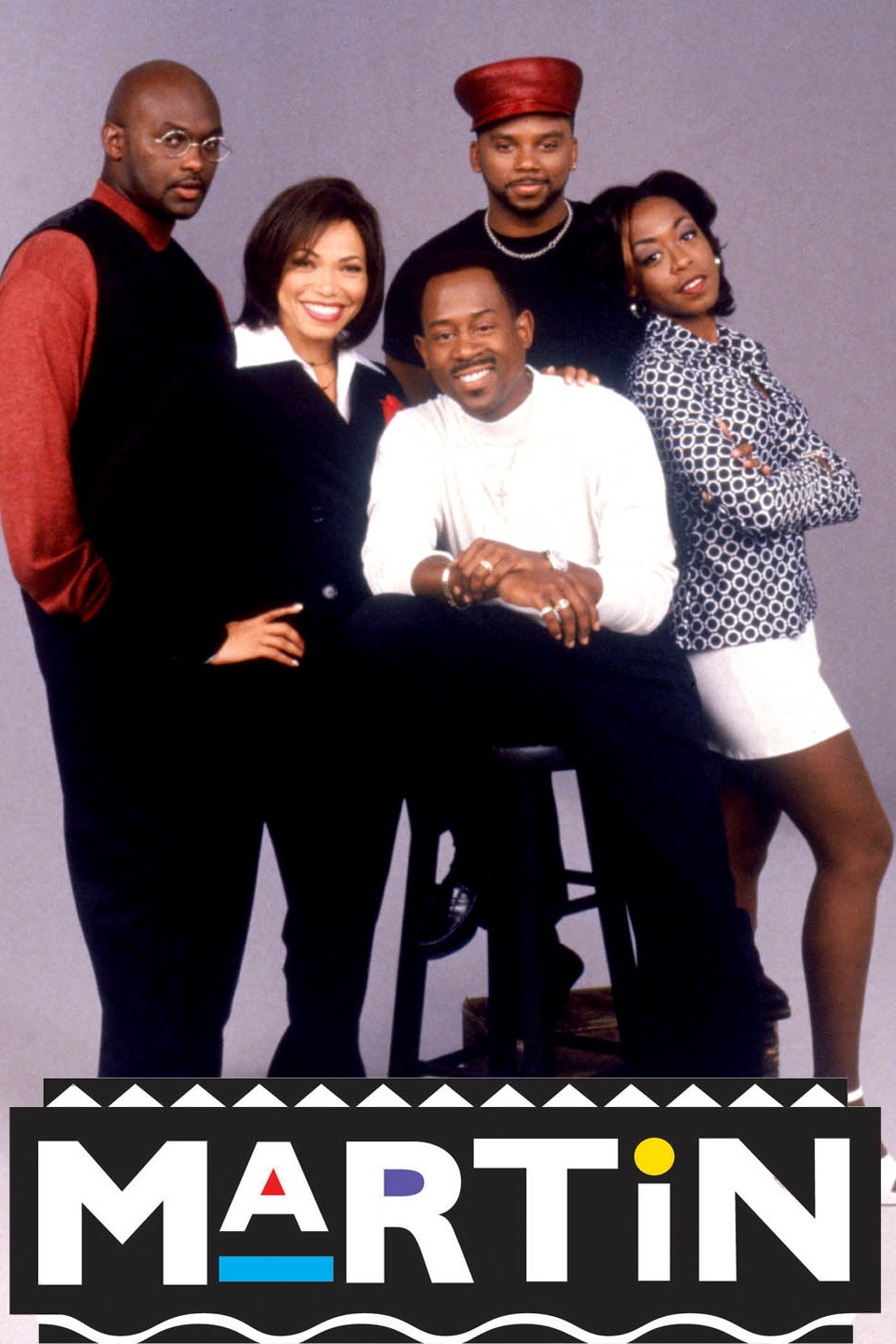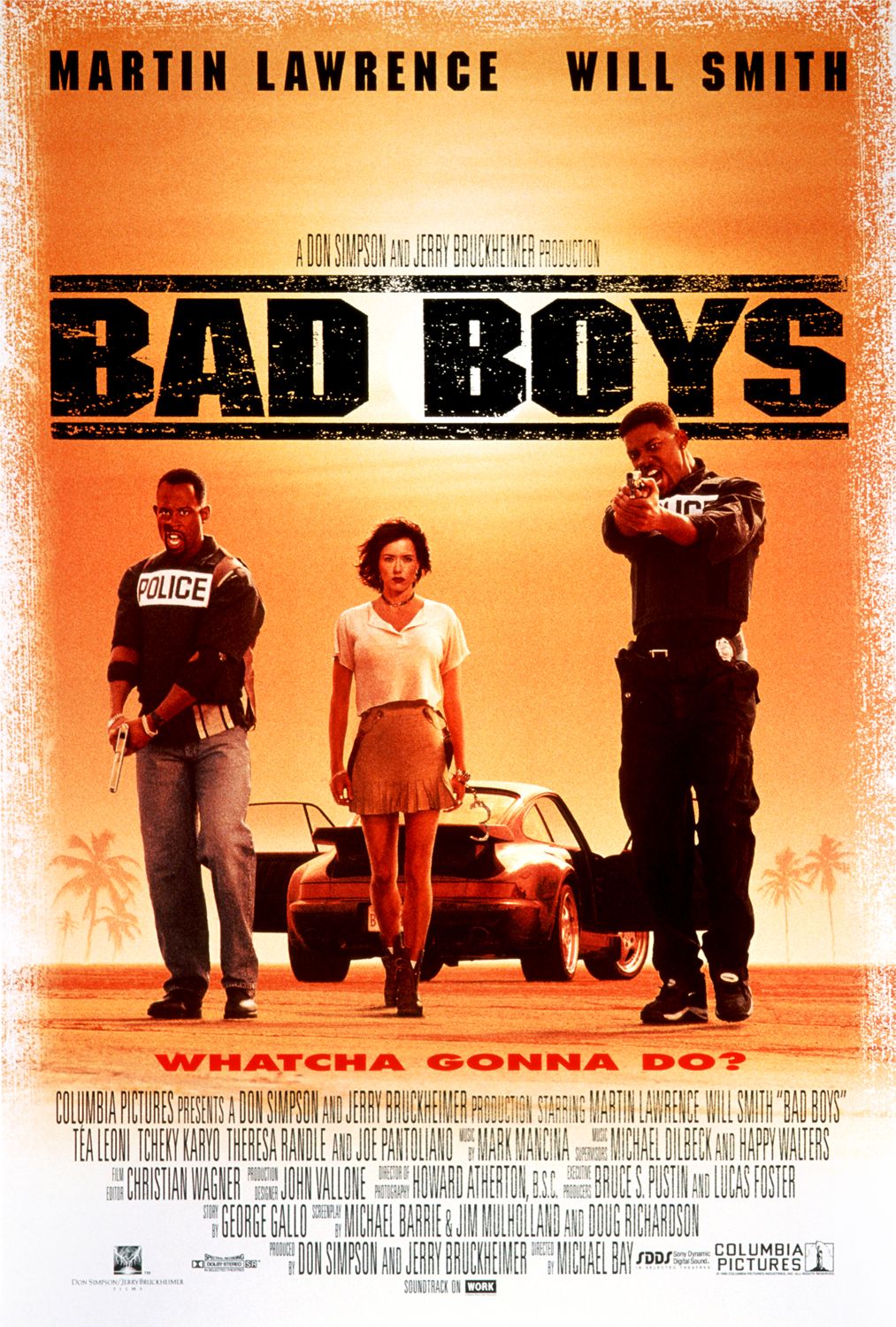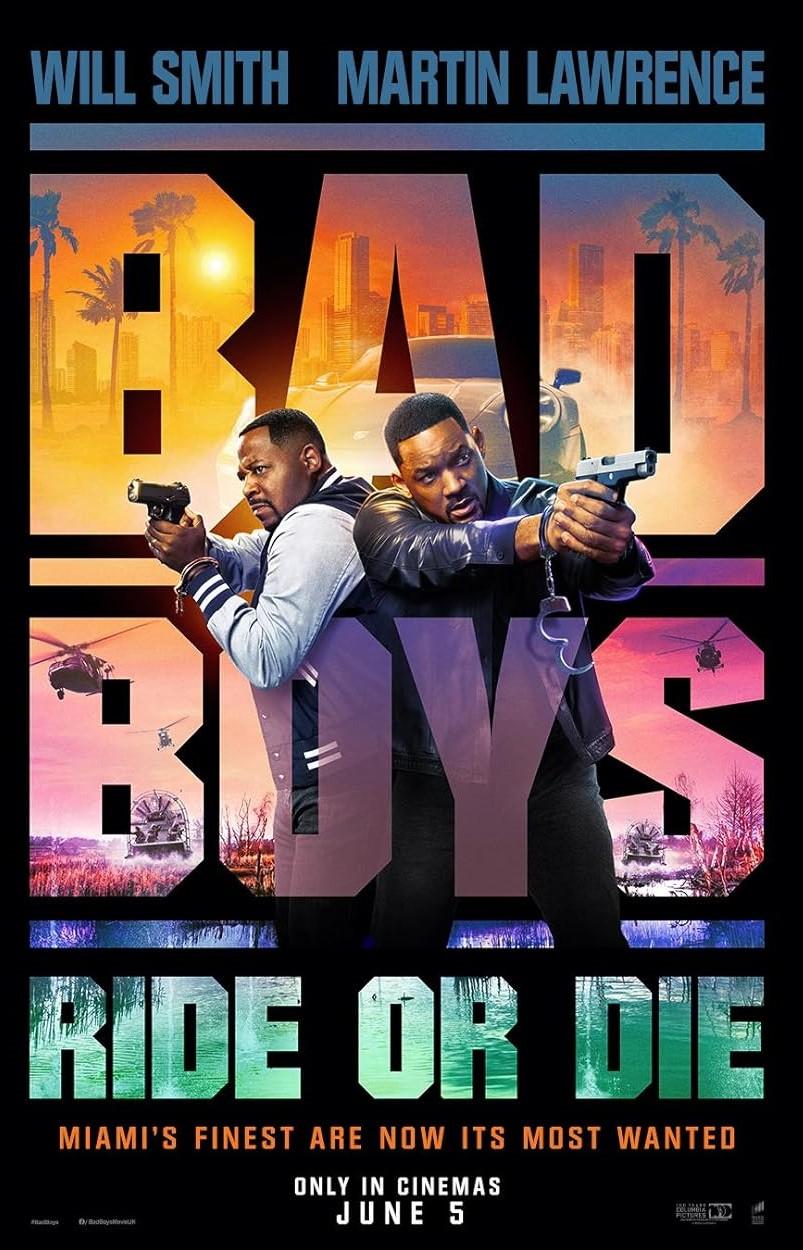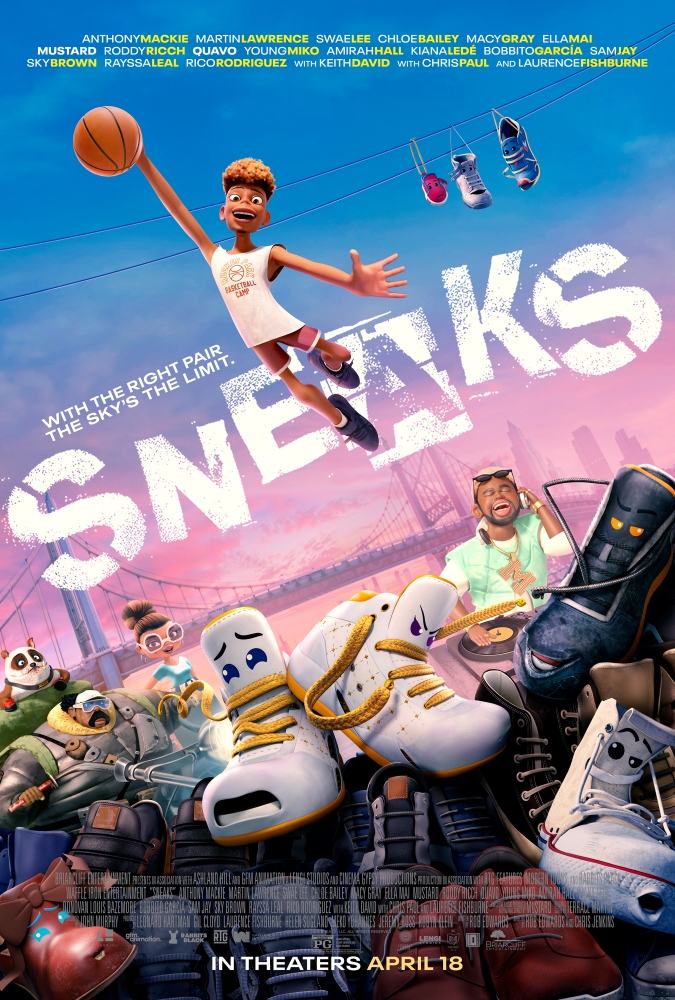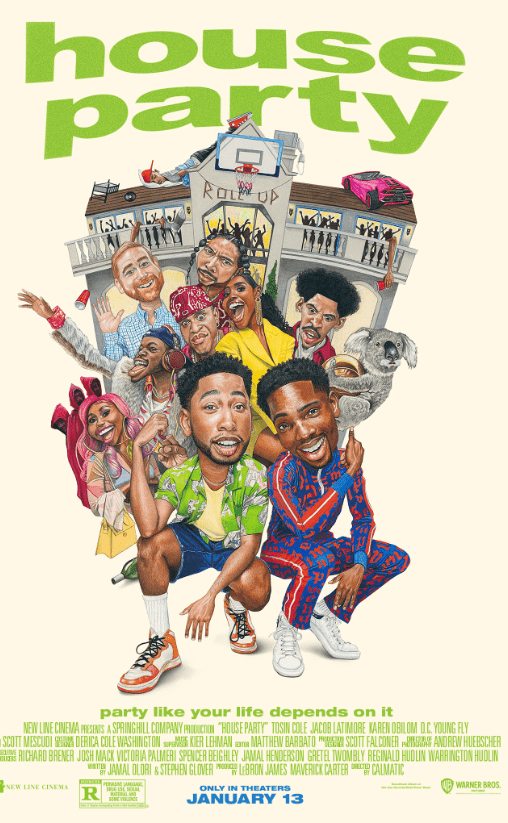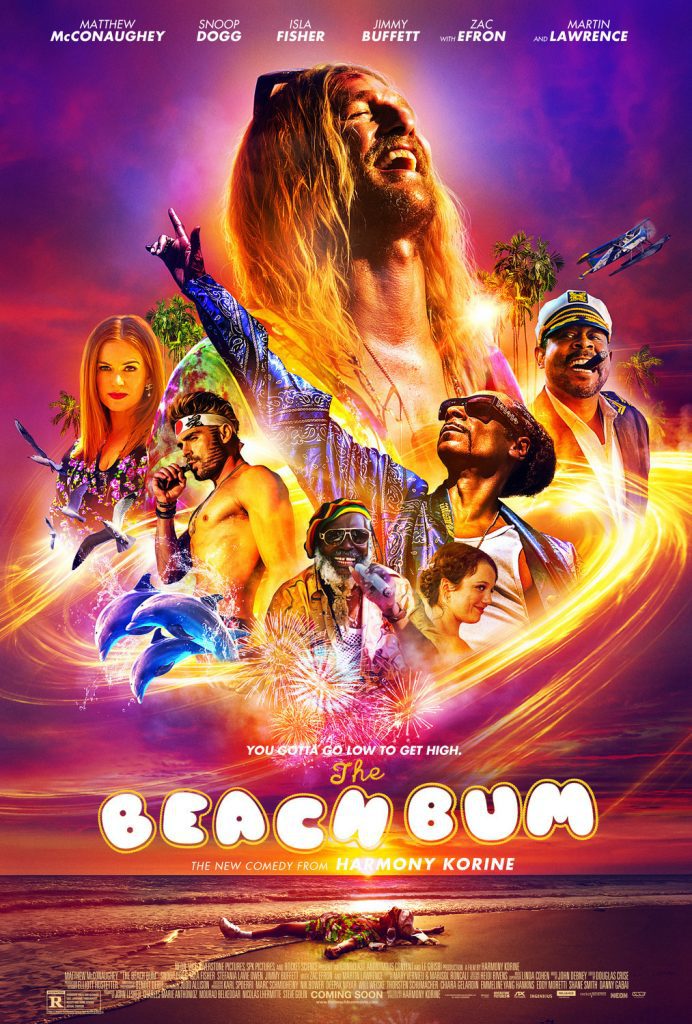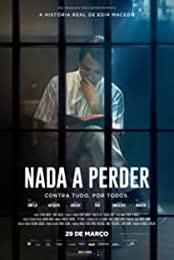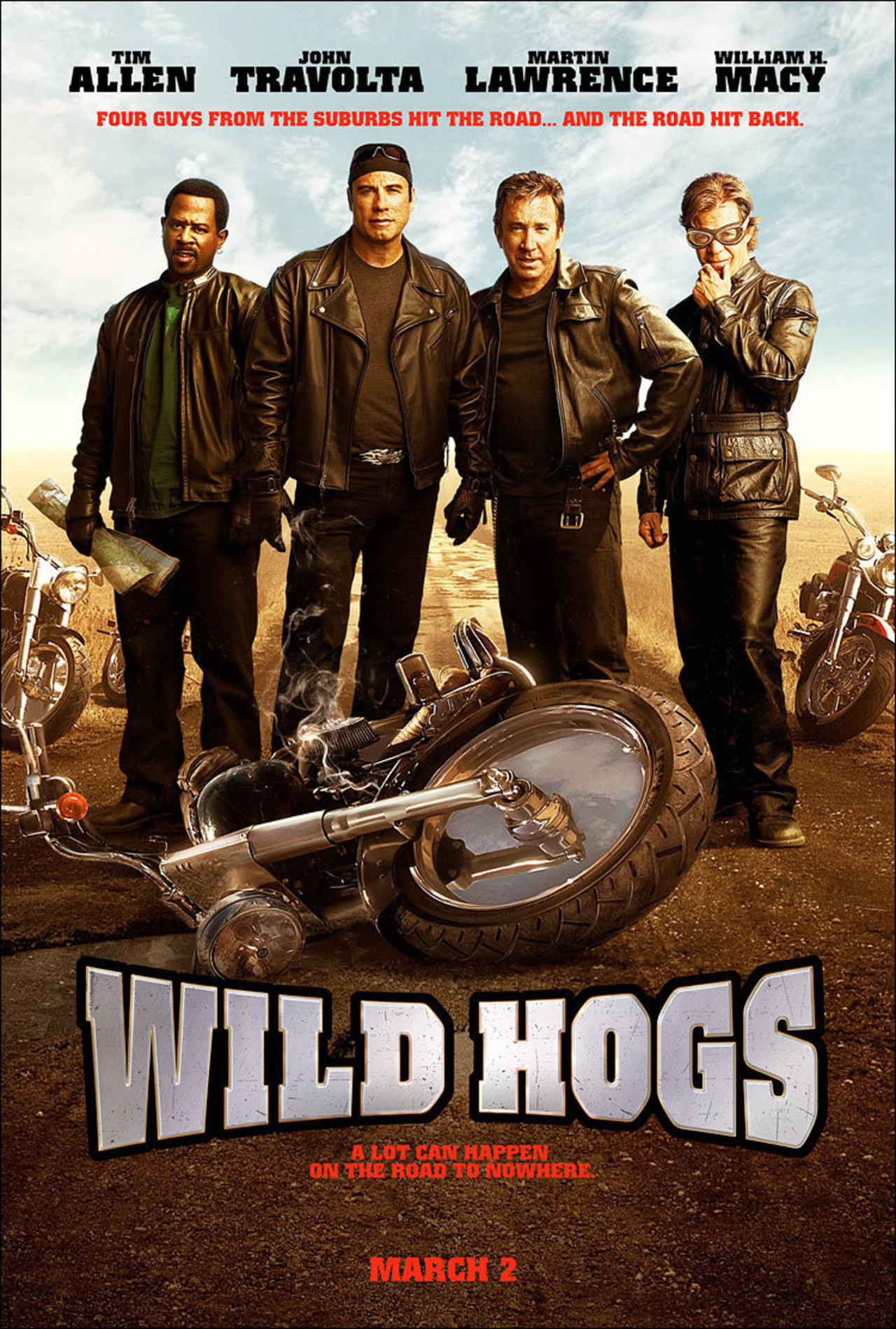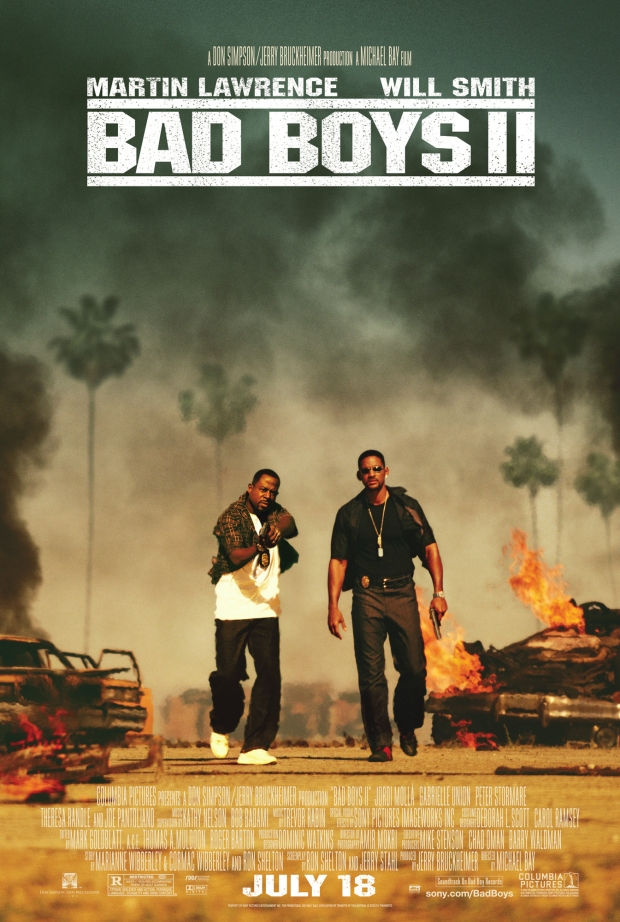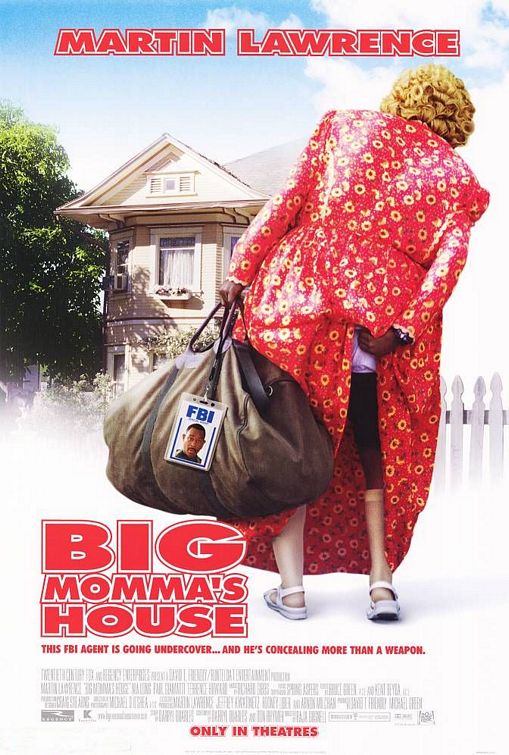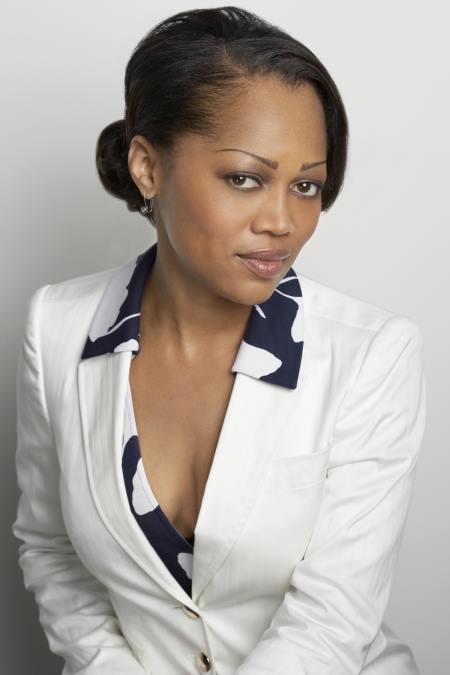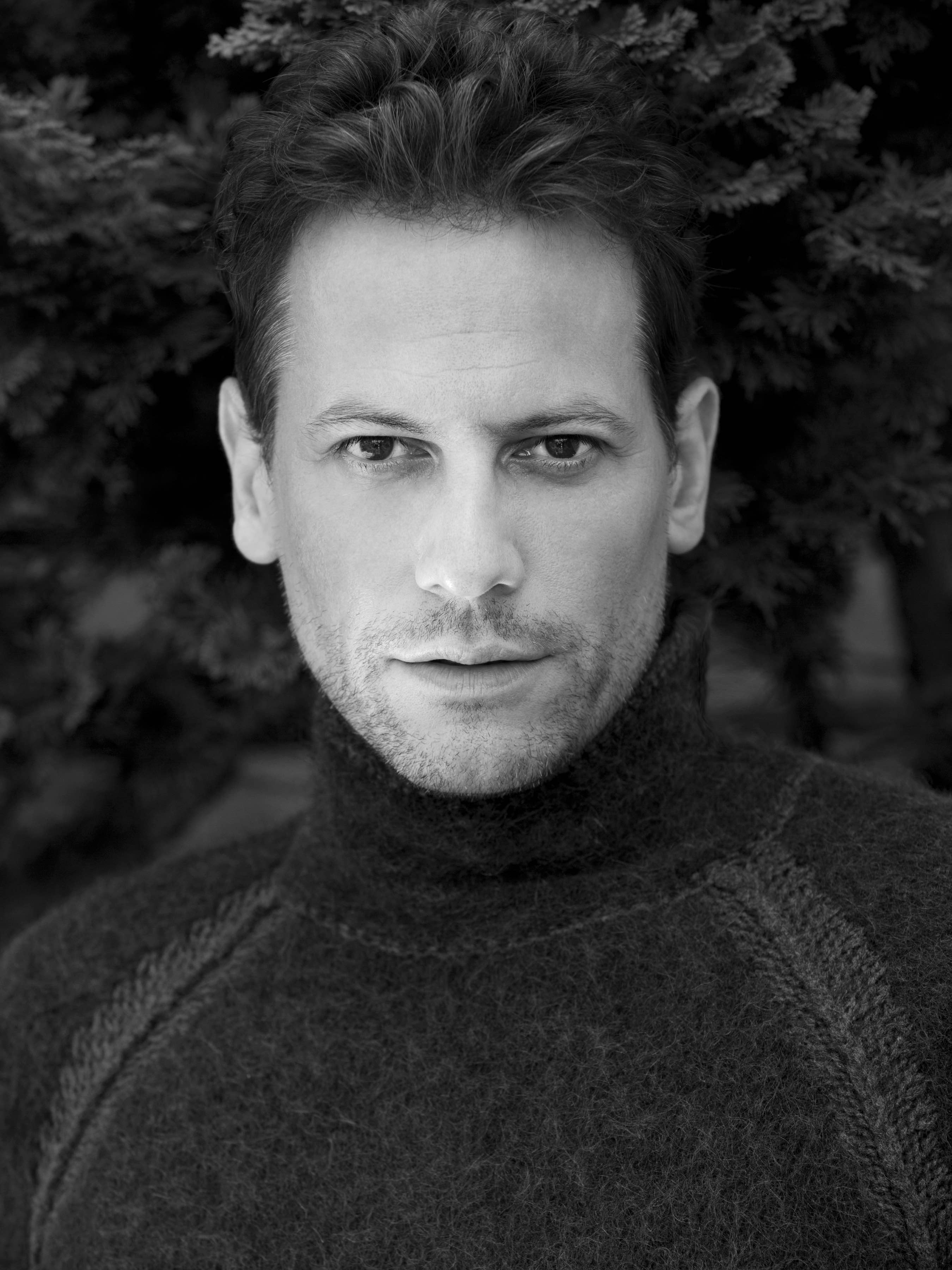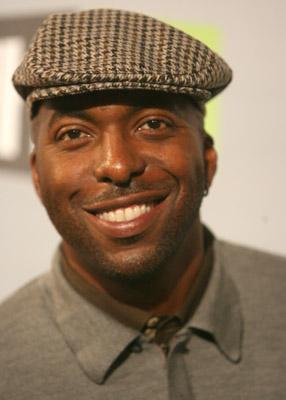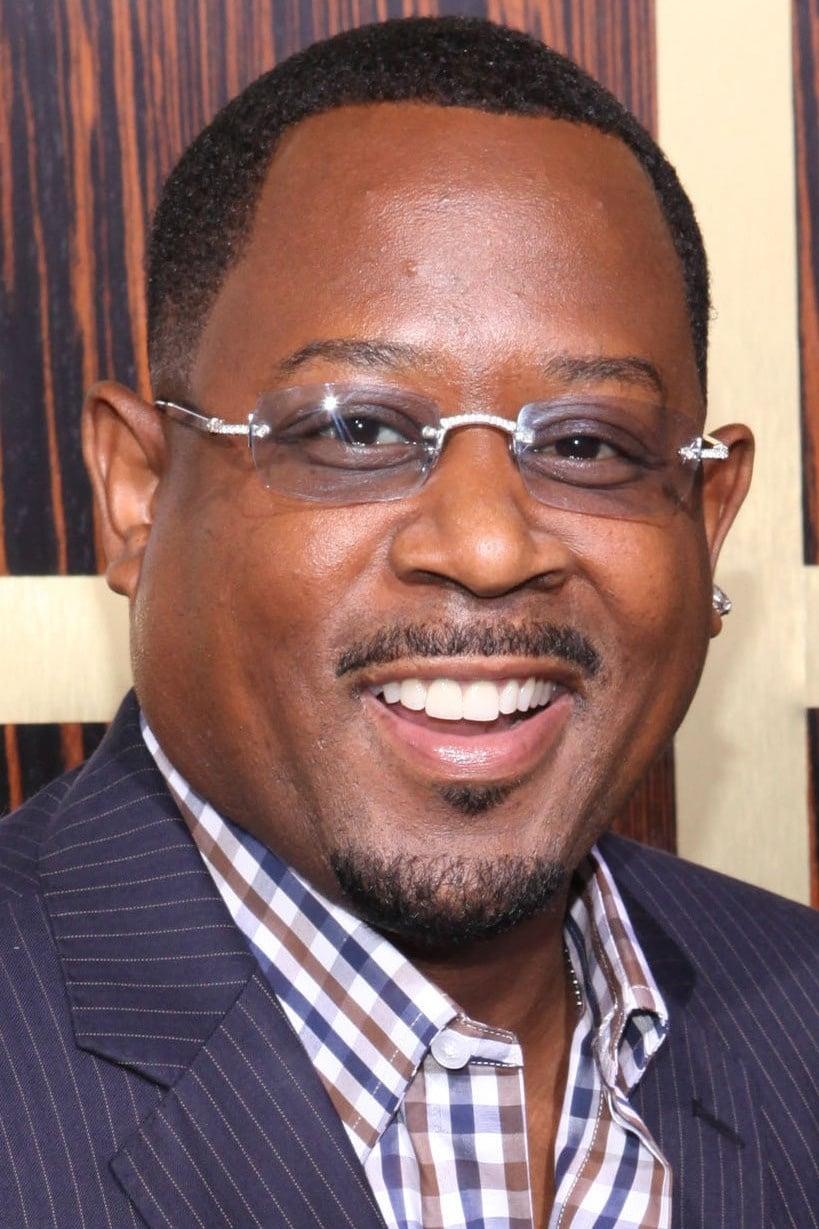
Martin Lawrence
Birthdate: Apr 16, 1965
Birthplace: Frankfurt am Main, Hesse, Germany
Martin Lawrence (birthname: Martin Fitzgerald Lawrence) was one of the leading Black comic performers and actors for more than two decades, spanning from his lead role in the long-running sitcom, Martin (1992-1997) to his recurring starring role in The Big Momma movies, but has appeared in movies more infrequently since 2011.
Lawrence’s feature debut was in a supporting role in Spike Lee’s seminal Do the Right Thing (1989), followed by a supporting role in writer-director Reginald Hudlin’s comedy, House Party (1990), starring Kid ‘n Play (Christopher “Kid” Reid and Christopher “Play” Martin), “Paul Anthony” George, and Robin Harris, and which grossed $26.4 million for New Line Cinema after premiering at the Sundance film festival, and resuming his role in New Line’s successful sequel, House Party 2 (1991), co-directed by Doug McHenry and George Jackson, with new cast members Tisha Campbell, Iman, Queen Latifah, and Georg Stanford Brown, and taking in a solid $19.4 million.
Lawrence had his debut feature starring role in director-writer Topper Carew’s comedy, Talkin’ Dirty After Dark (1991), with Tom “Tiny” Lister Jr., Mark Curry, and John Witherspoon, but which lost money for New Line Cinema. Lawrence reunited with director Hudlin in a supporting role in the hit comedy, Boomerang (1992), starring Eddie Murphy, Halle Berry, Robin Givens, David Alan Grier, Grace Jones, Eartha Kitt, and Chris Rock, earning $131 million (on $42 million costs) for Paramount Pictures.
Martin Lawrence did his first stand-up feature film, You So Crazy (1994), directed by Thomas Schlamme, which marked Lawrence’s breakout as a star with a knockout return of over $10 million gross for producer HBO Independent Productions and distributor Samuel Goldwyn Pictures (which bought the movie from Miramax after it received an NC-17 MPAA rating).
Lawrence cemented his star status by co-starring with Will Smith in the massive action comedy hit, Bad Boys (1995), directed by Michael Bay and with Téa Leoni, Tcheky Karyo, Theresa Randle, and Joe Pantoliano, and grossed a big $141.4 million (against $19 million costs); Lawrence resumed his character Marcus Burnett in three follow-up sequels: Bad Boys II (2003), again directed by Bay, and with new cast members Jordi Molla, Gabrielle Union, and Peter Stormare, racking up a fair $273 million gross (against $130 million costs); Bad Boys for Life (2020), directed by Adil & Bilall and with new cast members Vanessa Hudgens, Alexander Ludwig, Paola Nunez, and Charles Melton, and returning a powerhouse $426.5 million gross on $90 million costs; and the fourth in the series, Bad Boys: Ride or Die (2024), directed by Adil & Bilall, and with new cast members Tiffany Haddish, Eric Dane, Ioan Gruffudd, and Rhea Seehorn.
Lawrence was the director, writer, and star (as well as music supervisor) of the comedy-drama, A Thin Line Between Love and Hate (1996), co-starring Lynn Whitfield, Regina King, Bobby Brown, and Delia Reese, grossing $34.8 million globally for New Line Cinema and Savoy Pictures. Lawrence returned to buddy-cop mode with co-star Tim Robbins in writer-director Steve Oedenkerk’s Nothing to Lose (1997), earning a modest $44.5 million global return for Touchstone Pictures/Disney.
Martin Lawrence reunited with Eddie Murphy for the buddies-in-prison comedy, Life (1999), with Ned Beatty, R. Lee Ermey, Obba Babatunde, Bernie Mac, Anthony Anderson, Miguel A. Nunez Jr., Bokeem Woodbine, and Barry Shabaka Henley under Ted Demme’s direction, but which lost money for Universal Pictures/Imagine Entertainment. Lawrence was the sole star above the title in the cop comedy, Blue Streak (1999), co-starring Luke Wilson, Dave Chappelle, Nicole Parker, and William Forsythe, under Les Mayfield’s direction, grossing a strong $120 million worldwide (on a $36 million budget) for Columbia Pictures/Sony Pictures Releasing.
Lawrence enjoyed his second franchise role as undercover FB agent Malcolm Turner posing as “Big Momma” in 20th Century Fox’s Big Momma’s House (2000), directed by Raja Gosnell and with Nia Long, Paul Giamatti, and Terrence Howard, and delivering a knockout global gross of $174 million (against $30 million expenses); the success fed two sequels, Big Momma’s House 2 (2006), directed by John Whitesell and with new cast members Emily Procter, Zachary Levi, Mark Moses, Kat Dennings, and Chloë Grace Moretz, and earning a $141.5 million worldwide gross; and Big Mommas: Like Father, Like Son (2011), reuniting Lawrence with director Whitesell and new cast members Brandon E. Jackson, Jessica Lucas, Tony Curran, Portia Doubleday, and Emily Rios, and earning only a modest $82.3 million global return.
Lawrence co-starred (and executive produced) with Danny DeVito in the tepidly received comedy adapted by screenwriter Matthew Chapman and director Sam Weisman from Donald Westlake’s novel, What’s the Worst That Could Happen? (2001), with John Leguizamo, Glenne Headly, Carmen Ejogo, Bernie Mac, Nora Dunn, Ana Gasteyer, and Siobhan Fallon, faring poorly for distributors MGM (in the U.S.) and 20th Century Fox (ex-U.S.).
Martin Lawrence once again starred and executive produced a buddy comedy, but this one involving a leap to Medieval times with Black Knight (2001), directed by Gil Junger and featuring Marsha Thomason, Tom Wilkinson, Vincent Regan, and Kevin Conway, but earning only $40 million against $50 million costs. Lawrence starred in his second stand-up comedy movie, Martin Lawrence Live: Runteldat (2002), directed by David Raynr and delivered solid global returns for MTV Films and Paramount Pictures with over $19 million on a $3 million budget.
Lawrence’s run as a star executive producer of a buddy cop vehicle continued with the widely panned action comedy, National Security (2003), co-starring Steve Zahn, Colm Feore, Bill Duke, and Eric Roberts, and which grossed over $54 million worldwide for Columbia Pictures/Sony Pictures Releasing. Lawrence then jumped over to the sports movie genre with the comedy, Rebound (2005), in which he played two roles as identical twins with Wendy Raquel Robinson, Breckin Meyer, Horatio Sanz, and Megan Mullally, but which lost money for 20th Century Fox with a $17.5 gross (against $33 million costs).
Martin Lawrence starred in his first voice role in an animated movie with Open Season (2006), the first CGI animated movie made by Sony Pictures Animation, and co-starring the voices of Ashton Kutcher, Gary Sinise, Debra Messing, Billy Connolly, Jon Favreau, and earning a strong $200.8 million global take (on a $85 million cost). Lawrence was a co-star in the biker movie, Wild Hogs (2007), with fellow stars Tim Allen, John Travolta, and William H. Macy under Walt Becker’s direction, and grossing a powerhouse $253.6 million worldwide for Touchstone Pictures/Disney.
Lawrence starred in the family comedy, Welcome Home Roscoe Jenkins (2008), with the ensemble of Mike Epps, Joy Bryant, Louis C.K., Michael Clarke Duncan, Margaret Avery, Mo’Nique, Nicole Ari Parker, Cedric the Entertainer, James Earl Jones, and which returned a disappointing $43.6 million for producers Spyglass Entertainment and Lawrence’s own Runteldat Entertainment and distributor Universal Pictures. Lawrence stayed in the family comedy vein with College Road Trip (2008), with Raven-Symoné and Donny Osmond under Roger Kumble’s direction, which earned a modest $51.5 million global return for Disney.
Martin Lawrence joined the sprawling ensemble of director Neil LaBute’s 2010 remake of the 2007 black comedy, Death at a Funeral, with Loretta Devine, Peter Dinklage, Danny Glover, Regina Hall, James Marsden, Tracy Morgan, Chris Rock, Zoe Saldana, Luke Wilson, Keith David, and Kevin Hart, released by Screen Gems/Sony for a fair $49.1 million worldwide gross. Lawrence was absent from the big screen for nine years until indie filmmaker Harmony Korine cast him in a vivid supporting role in the wild Florida comedy, Beach Bum (2019), starring Matthew McConaughey, Snoop Dogg, Isla Fisher, Jimmy Buffett, and Zac Efron, and grossing a tepid $4.6 million for distributor Neon.
Lawrence took on his first dramatic role as co-star of the mystery thriller, Mindcage (2022), with Melissa Roxburgh, John Malkovich, and Robert Knepper under Mauro Borrelli’s direction, which Lionsgate released in a minimal theatrical release before VOD. Lawrence’s second voice role in an animated movie came with writer-director Rob Edwards’s Sneaks (2025), with the voices of Keith David, Laurence Fishburne, Anthony Mackie, Macy Gray, and Chris Paul.
Martin Lawrence Photos and Videos
Personal life
Martin Lawrence was born in Frankfurt, West Germany (now the Federal Republic of Germany), and was raised in Frankfurt and then in Landover and Fort Washington, Maryland, by his mother Chlora Lawrence (sales rep, cashier) and father John Lawrence (U.S. Army officer, police chief). Lawrence was the fourth of six children; his siblings include sisters Rae and Ursula, and his brother Robert. Lawrence’s parents divorced when he was eight years old, a year after his family moved from West Germany to the U.S., living in rough projects in Landover.
Lawrence attended Eleanor Roosevelt High School and Friendly High School. Lawrence’s first marriage was to actor/producer Pat Smith from 1995 to 1996, when they divorced; the couple has one daughter, Jasmine. Lawrence was married to Shamicka (Gibbs) Lawrence (businesswoman) from 2010 to 2012 when they divorced; the couple has two daughters, Iyanna and Amara. Lawrence’s height is 5’ 7”. Lawrence’s estimated net worth is $110 million.
Known For
Martin Lawrence Movies
actor
Previous (33)
Facts About Martin Lawrence
What’s in a Name?: Martin Fitzgerald Lawrence was named at birth for both Martin Luther King and John Fitzgerald Kennedy.
Boxer: Lawrence took up boxing to defend himself against bullies, managing to be a contender in Mid-Atlantic Golden Gloves contests.
Family Bonds: Martin Lawrence credits his mother Chlora and his older brothers for saving him from a life of crime, the path of several of his friends and acquaintances in Maryland.
Shingle: Lawrence has been an executive producer on several of his movies, under his production company’s name, Runteldat Entertainment.
Rough Period: Martin Lawrence experienced a personally difficult period from 1995 to 1999 (even as he reached the height of stardom) when he was hospitalized after a violent outburst during the filming of A Thin Line Between Love and Hate; hospitalized after brandishing a pistol in a busy Los Angeles intersection; settled a sexual harassment lawsuit by Martin co-star Tisha Campbell-Martin; arrested after punching a man in a Hollywood nightclub; and experienced a nearly fatal, three-day coma while jogging in preparation for a movie role.
Martin Lawrence News
People Also Searched For


